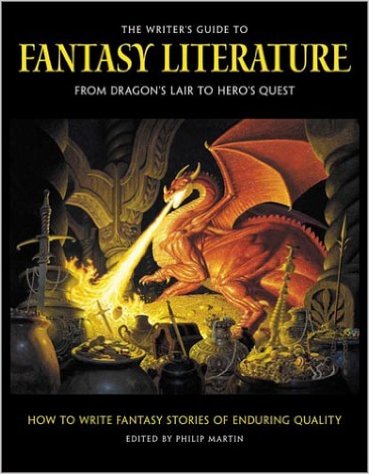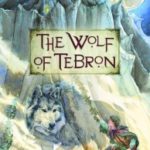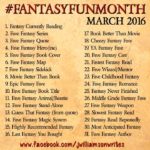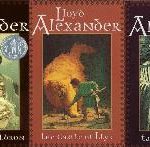Fantasy – Not Anybody’s Leftover Stale Bread
Why spend time dissecting fantasy and categorizing the different types? Speculative readers (and CBA publishers) need to know that not all fantasy revolves around a quest.
One of the unfortunate impressions about Christian fantasy that still lingers seems to be that all fantasy is the same, that it is derivative and stale.
First, to a certain extent, all stories are derivative, which is why writers quote from time to time the mantra that there are no new stories. But beyond that, “stale” is a little hard to swallow when there has been so little “fresh” work that can be classified as “Christian.” When will Christian romance be considered “stale” for example? Only when readers decide to stop buying it. So, in order for Christian fantasy to be considered stale, there first has to be an adequate supply for readers to get tired of.
To get to the point of “an adequate supply,” it seems to me we must first expose the misconception that all Christian fantasy is alike. In truth, there is much variety within the genre; not every story is a rehash of Tolkien’s tale—not even other epic quests. 
The Writer’s Guide to Fantasy Literature, edited by Philip Martin (The Writer Books) gives a good description of five basic categories of fantasy. Before I jump into those, just a personal note of discovery about the truth of this point. On a writers’ discussion board, a number of us in the SFF thread responded to a topic about our work in progress. I’m not sure now what the driving question was—maybe, what is your pitch? Regardless, one thing that struck me was the amazing variety. No two stories sounded remotely alike. Were there some elements that we shared? In the most remote way, as all mysteries have something unknown to discover, as all romances have two people who fall in love, so too, fantasy has evil in conflict with good. That’s really its most basic requirement, but there are SO many ways stories can work within that “quilting frame.”
Here are the categories Martin identifies.
High fantasy. This is perhaps what people think of when they hear the term. These stories have settings that sound like Europe in the Middle Ages, with knights and kings, castles and cottages. These stories are rooted in classical mythology and “tackle head-on the question of Good and Evil.”
Adventure Fantasy. These stories encompass a large variety, from swordplay to talking animals (or talking stuffed animals). The cohesive element is the desire of the character(s) for personal adventure, as opposed to engaging in the lofty purpose or great cause of high fantasy. Martin, concerning Evil in adventure fantasy:
Evil in adventure fantasy is not grand Evil personified, but a more obscure cousin: Chaos. In adventure fantasy, forces of evil (or uncertainty) are everywhere in never-ending supply: dragons, sorcerers, scheming barbarians, stalking Heffalumps. Unlike big Evil, Chaos is fluid, constant.
Fairy Tales. These stories are more directly designed to deal with heart issues: fear, courage, greed, love. From The Writer’s Guide to Fantasy Literature:
Fairy tales tend to deal with personal transformation. In fairy tales, people (or creatures) change in dramatic, often miraculous ways, and this is at the heart of the story. The ugly duckling is transformed into a beautiful swan, the toad into a prince, a cinder-maid into a princess, the fool into a wise person. Also, fairy tales explore on a very individual level the invisible boundary between the safety of home and the dangers that lie beyond (and that occasionally force their way into the cottage.) …
Fairy tales look out for the warmth of the hearth—or cottage, village, or protective castle walls—to the unknown, possibly evil world of the dark forest—the foreign land, the big city, the land of the wealthy, the odd strangers, the wilderness realm of monsters.
Magic Realism. I think of this as Twilight Zone-type fantasy. Martin’s description: “Magic realism produces stories in which magical things happen, often unexpectedly, in the midst of very realistic, everyday settings and events … In these stories magic is more likely to act as an independent character than as a tool used by other characters.”
He points out the varied nature of this type of fantasy. Some stories infuse the ordinary with the fantastic, often crossing over into modern mainstream fiction, though they clearly depend on the central tropes of fantasy: good versus evil and magic. Some magic realism reveals the magical as good. In other stories, it is what causes the character’s downfall as he follows his base desires. Often the distinction between dreams and reality is murky at best.
Martin again:
In magic realism, abstract thoughts and concepts become real. Something intangible is given sudden visible form … One writer suggested that Tolkien fantasy is inherently Protestant, with its reliance on the profound meaning of each individual’s actions. Magic realism on the other hand is more Catholic, with its belief in magical transformation from outside, mysterious powers. In any case, magic realism is fantasy, but one in which the key rules are often invisible to the humans involved.
Dark Fantasy. As is true for other categories, within this classification there are numerous sub-groups: horror, Gothic, dark satire, urban, vampire, and ghost stories.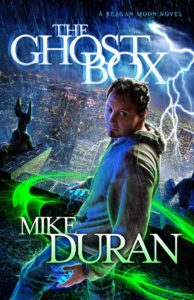
Martin makes an interesting statement about horror, that I wonder whether it applies to all the dark fantasy:
It’s roots lie in ancient tales wherein the matter of curses is closely linked t religion and taboos. Doing something wrong is bound to lead to awful consequences. These stories are morality plays: often the plot hinges on unraveling the mystery of just what was done wrong—and on discovering the manner in which this can be corrected or reversed. Horror explores the consequences of misguided action, just as the Old Testament of the Bible explores the sometimes horrific consequences of what happens to those who transgress the law.
Does any other genre offer such a varied tapestry? No two fantasy stories have to look alike, and I suggest that fewer and fewer Christian fantasies resemble the large successes of the past.
What’s your favorite type of fantasy, or do you prefer other types of speculative fiction? What draws you to your favorites? What’s your favorite novel in your favorite category?
This post is an edited version of two articles that first appeared here in October 2006.


































